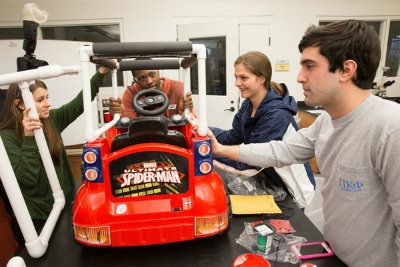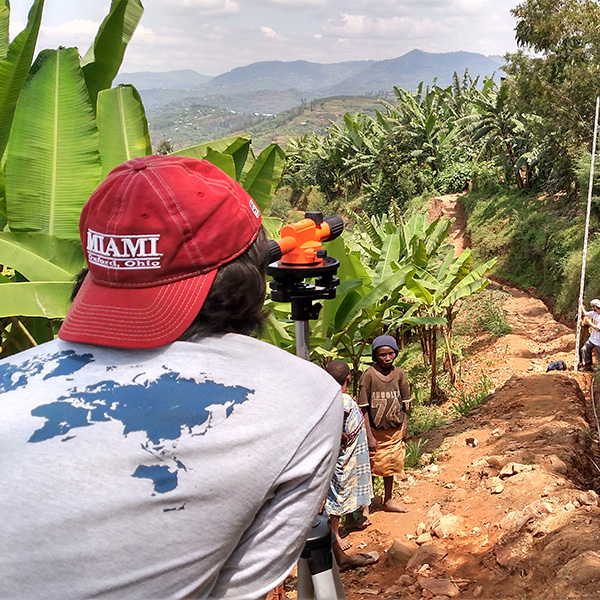Design Solutions that Enhance Lives
Curriculum and Concentrations
All College of Engineering and Computing (CEC) students experience a curriculum infused with our Socially Engaged Engineering and Computing philosophy. The Humanitarian Engineering and Computing minor gives students additional educational opportunities to enhance their cultural competency and experiential learning through a variety of courses, projects and research opportunities.
Students in the Humanitarian Engineering and Computing minor complete at least 18 credit hours. These credit hours include:
- A service or humanitarian-focused activity (such as research or study abroad).
- A humanitarian-focused engineering or computing capstone project.
- Coursework that connects engineering and computing with issues in society, sustainability, global development, and human well-being.
Example courses:
- CEC 222 Socio-Environmental Responsibility in Engineering and Computing
- CPB 244 Introduction to Environmental Engineering
- ECO 356 Poverty and Income Distribution
- ITS 302 Issues in the Global South
- KNH 321 National and Global Health Policy
- MME 451 Sustainability Considerations in Design and Development
Facts and Stats
In the U.S. for the number of students who study abroad
Open Doors, 2023
Undergrads work with professors on funded research each year
Best undergraduate engineering among public national universities, no doctorate
U.S. News & World Report, 2025
Student Outcomes
At the completion of this minor, students should be able to:
- Design solutions to engineering problems by applying principles of engineering, science, and mathematics in socially conscious ways that enhance the lives and capabilities of others.
- Demonstrate social, and professional responsibility in engineering situations and make informed judgments that consider the impact of engineering solutions in global, economic, environmental, and societal contexts.
- Perform effectively and cooperatively on teams (in the broadest sense with a variety of stakeholders) that establish goals, plan tasks, meet deadlines, and produce results that are mutually acceptable.
Additional Opportunities
Study Abroad
Participate in an approved study abroad or study away program with a service component, and you’ll earn two credit hours toward the Humanitarian Engineering and Computing minor.
Research
Or, get involved in a service or humanitarian focused research project with a faculty member or Miami University Center for Assistive Technology to fulfill the service learning requirement for this minor.
Humanitarian Capstone
All CEC students must complete a senior design (capstone) project before graduating, but students in this minor complete a pre-approved project with a pre-approved humanitarian engineering and computing focus.
Admission and Aid
Explore what it means to be a college student at Miami University in Oxford, Ohio, where students prepare to go anywhere and everywhere. We’ll be here to help every step of the way as you prepare for college admission, enrollment, and success.
Contact Us
Undergraduate Admission
513-529-2531
[email protected]


